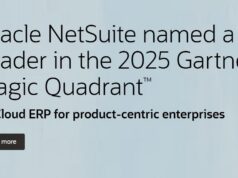Apple’s hard-push for a bigger market share in the enterprise computing market is showing up some encouraging results. According to a survey by Parallels, the use of Mac in small and medium-sized enterprises has surged and 55 percent of businesses are now Mac-friendly.
The survey took feedback from a large number of IT professionals on the matter who acknowledged that the Mac market share is climbing.
The survey’s respondents included IT professionals who observe trends from a vantage point such as system administrators, IT managers, and helpdesk staff, per the study.

Windows dominates the enterprise market
In desktop and laptop computers, Microsoft Windows commands more than 70 percent in most markets and the percentage hovers to 77 to 87 percent at a global level. Apple’s Mac OS has a 9.6 to 13 percent market share while Google’s Chrome OS holds 6 percent market share and a 2 percent share is jointly taken by other Linux distributions.
However, when it comes to mobile operating systems there is a reversal of the scenario with Android plus iOS dominating most markets including the United States, with bigger popularity than Windows.
The traction of Macs in the enterprise computing market has also been endorsed by a recent Changewave data that showed Apple as one of the top three vendors in the enterprise space.
Main demand drivers for Mac
The research also looks at the rationale behind the growing penetration and finds performance is the main driver. Macs perceived as the best tool for any task. Other variables include security, Apple device compatibility, ease-of-use, and employees prefer using Macs in the office as well which they use at home also.
Among the user segments in the enterprise ahead in adopting Mac include IT departments, creative and marketing wings of companies.
The IT departments are using Macs mainly for software development including cross-platform apps for connected enterprise and leveraging the better cost of ownership and higher reliability of the platform. Those factors are also borne by the statements of SAP and IBM.

According to analysts, the traction of Macs is also related to the rising trend of BYOD (bring your own device) in most enterprises.
The global rate of Mac deployments in business stands at 9 percent among SMBs or small and medium businesses. Nearly 42 percent SMBs use client-based virtualization tools to run Windows on the Mac. However, Apple’s plans to migrate Macs to self-developed ARM-based A-series processors have stoked anxiety whether it can run Windows.
Cost of ownership
Mac’s adoption was hamstrung by the cost of ownership related arguments. Some say the cost is high, others say it is justified while another school says a long term perspective suggests the acquisition cost is negligible.
IBM has said when looked from a per-device basis, Mac is cheaper than PCs. However, the initial sales cost of Macs continues to be a deterrent for many enterprise IT purchasers.
It is likely that Apple’s move to use its own processors may bring down Macs prices. But that is just a probability as the company is known for pushing value than showing price benevolence.
Although the needle of enterprise market share is flipping favorably towards Apple, it needs to be seen how far it will tilt in the coming months.











